Can a business add additional fees and charges to a bill due to COVID-19?
Yes. Consider the additional costs to build barricades, close off every other table, provide enough disinfectant, and sanitizer. Also supplying disposable personal protective equipment (PPE) for employees. Obviously, that costs money.
Additionally, for those of you in the food industry you are already aware of the shortages in supplies. For example, COVID-19 has slowed the U.S. meat production for months due to closures: https://www.wsj.com/articles/coronavirus-to-slow-u-s-meat-production-for-months-ceo-says-11589540400.
What does a restaurant owner do in the face of rising costs, mandatory expenses, and limited customer base? Charge additional fees. Some businesses already have begun charging a COVID-19 fee to help cover these costs and expenses. Specifically, it appears as a line item on receipts. The economic justification is the COVID-19 fee is for the things like the PPE, plastic barricades, and other social distancing requirements placed by government regulation.
If the business is being transparent and disclosing the potential customer or client that additional fees will be charged, then the business can pass along those fees. Obviously, there are caveats to this, such as reasonableness and what is sufficient notice prior to the assessing such a charge. For example, kind of like how restaurants would notify you of automatic gratuity charge for parties over a certain size in their menu or putting a sign at the grocery store entrance to charge for providing a bag.
I understand for consumer-minded people that this is a shock, a deviation from the norm. Going from a couple of months of lockdown to added fees for some basic activities like dental cleaninings and haircuts is a bit much. However, the overall sentiment is that, yes, a business can assess an additional fees due to COVID-19 social distancing expenses.
Isn’t this gouging?
Not likely. The law in Hawaii, which is Hawaii Revised Statute 127A-30 is specific about when it is prohibited to increase of prices during a state of emergency and similar situations. By the very nature that the economy is reopening, that would indicate the emergency is ending. Specifically, HRS 1270A-30 prohibits “any increase in selling price of any commodity, whether at the retail or wholesale level, in the area that is subject of the proclamation [state of emergency] or the severe weather warning;”
In the case of personal beauty service providers it would be hard to argue that their service is a “commodity.”
Additionally, the law makes clear that “any additional operating expenses incurred by the seller [] because of the emergency or disaster or the severe weather, and which can be documented may be passed on to the consumer.” Again, we have that key term “documented”. So another out for these fees to documenting the decision in how to apply them. Business owners considering COVID-19 fees would be wise to do planning and accounting of how they are derived. Showing the correlation between the fees assessed and the social distancing requirement expenses may be critical in defending the practice.
Business owners should always be aware of actions that may be perceived by the public as unfair or deceptive. The reason is that consumer protection laws do consider unfair or deceptive acts or practices as unlawful. Therefore, a business owner needs to communicate effectively with potential clients and customers about their COVID-19 fees.
Is there an example of this in other industries?
The COVID-19 pandemic aside, disasters whether natural or man-made have always disrupted supply chains and causing problems for business owners. There are industries where detailing out the contractual relationship in these kinds of situation is the norm. One example is contractors and homeowners for the price of supplies.
Consider, if there is a forest fire that destroys a large supply of lumber. Then the lumber supplies for home building decreases, but demand goes up. So the contractor has to source the wood supplies from others. For business lawyers, we would look to see if this situation is in the contract. Is there an Escalation/Unit Price clause? This clause would be show there was an explicit understanding between the parties. It would indicate if the contractor is entitled to adjust the material price of an item due to an event impacting their bottom line. Like short supply of lumber due to a fire disaster.
Stores, restaurants, beauty services, and dental offices unused to such jumps in operating expenses obviously shock their consumers when they pass COVID-19 fees. Obviously, customers and clients also do not an expect a lengthy written contract that spells it out. Instead they just get the bill for it. The business owner then gets a lot of angry comments.





